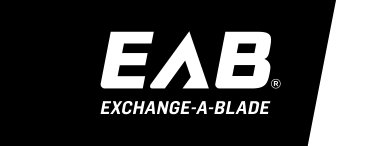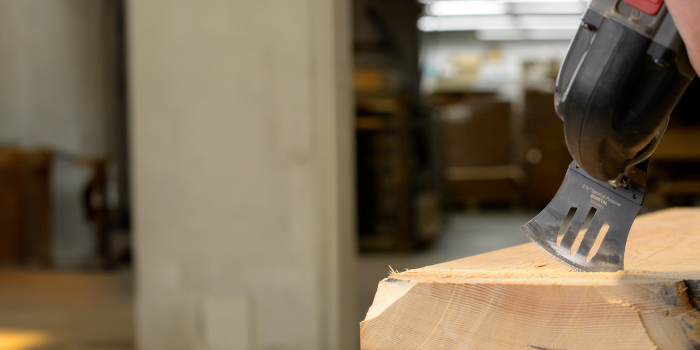To hammer or not to hammer, that is the question!
2024/02/01
About hammer drills
A hammer drill, sometimes called a rotary hammer, is a powerful tool that is used for drilling holes in hard surfaces such as concrete, brick, and stone. It is used in construction, renovation, and DIY projects. The hammer action of the drill is what sets it apart from regular drills, and it can be essential for certain applications. In this blog, we will discuss how a hammer drill works, why the impact action of a hammer drill is important, when and when not to use it. Additionally, we will explore common applications and review what you’ll need to get started.

How a hammer drill works
A hammer drill works by combining a rotary motion with a hammering action. The drill bit rotates as it moves forward, but at the same time, it also moves back and forth rapidly, creating a hammering action that makes it extremely efficient at blasting through masonry. The hammering action is created by a mechanism inside the drill that strikes the back of the bit as it rotates. The rotation of the drill bit removes the broken material and dust allowing the process to continue. Occasionally you will need to pull out the bit and clean out the hole.
Why the impact action of a hammer drill is important
The impact action of a hammer drill is important when drilling into hard surfaces that can be difficult to penetrate, e.g., concrete, brick, or other hard surfaces. Without the impact action of the hammer drill, it would be much harder to drill into hard surfaces, and it would take a lot longer to complete the task.
When to use a hammer drill
A hammer drill should be used when you need to drill into hard surfaces such as concrete, brick, and stone. It is also useful for drilling into masonry materials. The hammer action of the drill helps to break up the surface, making it easier to drill into. If you try to use a regular drill on a hard surface, it may take a long time to complete the task, and you may not be able to drill through the surface at all. So, if you need to drill into a hard surface, a hammer drill is the best tool for the job.
When not to use a hammer drill
There are some situations where you should not use a hammer drill. If you are drilling into a delicate surface such as tile or glass, a hammer drill could easily crack or damage the surface. In these situations, it is better to use a regular drill along with a diamond-tipped drill bit that is specifically designed for these materials. Additionally, if you are working on a project that requires precision drilling, a hammer drill may not be the best option. The hammering action can make it difficult to control the drill, so you may not be able to drill the hole exactly where you need it.
What applications are hammer drills best suited to?
Hammer drills are used in a variety of applications, including construction, renovation, and DIY projects. Here are some examples.
INSTALLING ANCHOR BOLTSHammer drills are commonly used to install anchor bolts in concrete. These bolts are used to secure structures such as fences, posts, and awnings. |
|
DEMOLITION WORKHammer drills can be used to break up concrete, brick, and stone. They are often used in demolition projects to remove old structures or to prepare a site for new construction. A special bit with a chisel edge or point is used in this application. The rotary function is turned off on the tool. |
|
ELECTRICAL WORKIf you need to run electrical wiring through a hard surface, such as a concrete. |
|
What you’ll need to get started using a hammer drill
When using a hammer drill, you will need a few different tools. First, you will need a hammer drill itself, which can be purchased or rented from a hardware store. You will also need to select the appropriate drill bit by size, length and mounting system that works for your application and drill. These bits are made from high-quality materials (carbide teeth and hardened tool steel) that can withstand the impact action of the drill. Finally, you will need some important safety equipment, including goggles, gloves, and ear protection.
.jpg)
About Exchange-A-Blade hammer drill bits
Exchange-A-Blade hammer drill bits are market leaders in quality and value. They can be used for wide range of applications including construction, renovation, and DIY projects. They are available in two quality options, PRO for the heavy-duty professional contractor, and IND for the extreme duty needs of the high volume contractor.
Drill Bits Masonry SDS Plus 5/32" | Razor Back® | EAB Tool Company (exchangeablade.com)
Drill Bits Masonry SDS Quad 1/2" | Razor Back® | EAB Tool Company (exchangeablade.com)








.jpg)
